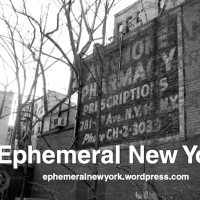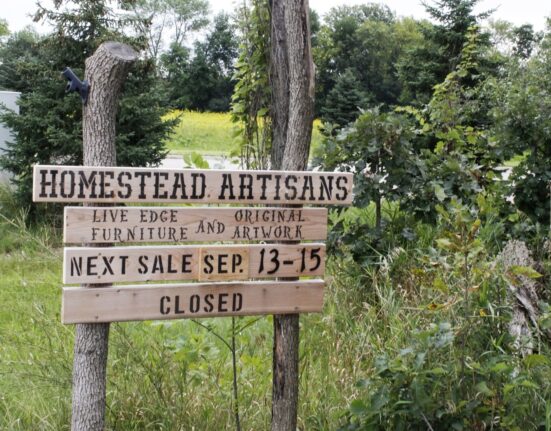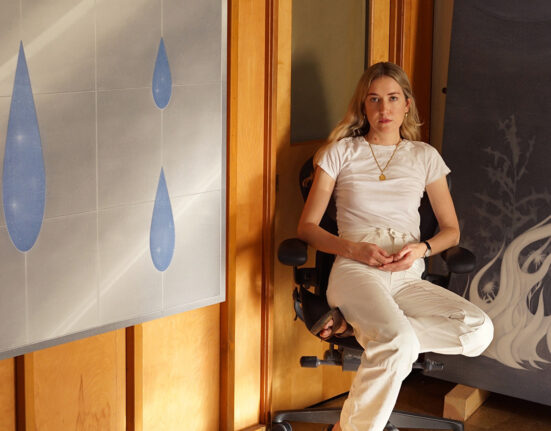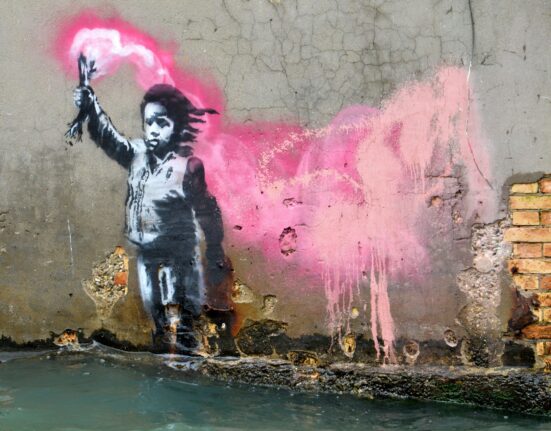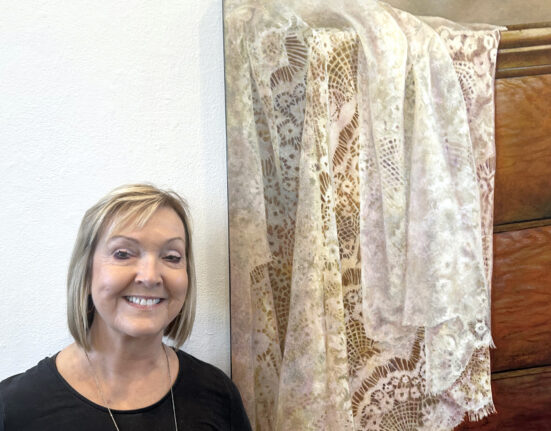It almost looks like George Luks painted two completely different scenes in “Roundhouse at High Bridge,” his 1910 panorama of Upper Manhattan and the Bronx bisected by the Harlem River.
On the right is a more placid scene: hazy pink and beige skies; a sloping bend in the river. A lone tugboat makes its way toward the long-gone Putnam Bridge or the Macombs Dam Bridge roughly 20 blocks to the south at 155th Street. A reddish streak seems to trail off at the end of the bridge.
The scene on the left is one of turbulence. The roundhouse is belching smoke from the steam engines of the trains that start and stop here. An orange-red engine or trolley sits on the rails just outside the roundhouse, drawing the eye.
Perhaps the different depictions from the same vantage point say something about the destructive effect industry has on natural beauty. The roundhouse—which did exist in this general area—is imposing and fiery, almost apocalyptic beside a serene river. It fits with the tender yet unromantic approach this Ashcan artist typically took to his cityscapes of early 20th century Gotham.
A few years after Luks completed this painting, he set up a studio and residence in an Upper Manhattan neighborhood five minutes from the High Bridge, according to the 1994 book American Impressionism and Realism.
“Although his new neighborhood was blessed with a park-like atmosphere…it did not appeal to him as a subject, and he pursued instead broader views of the city on the outskirts of his comfortable community,” the book states.

